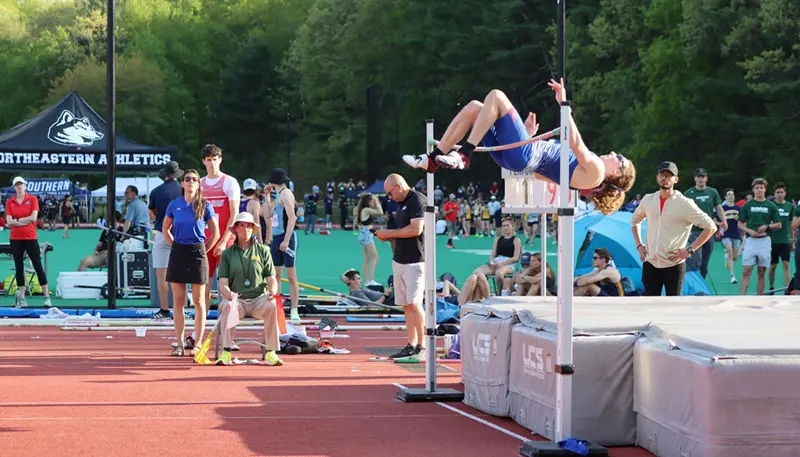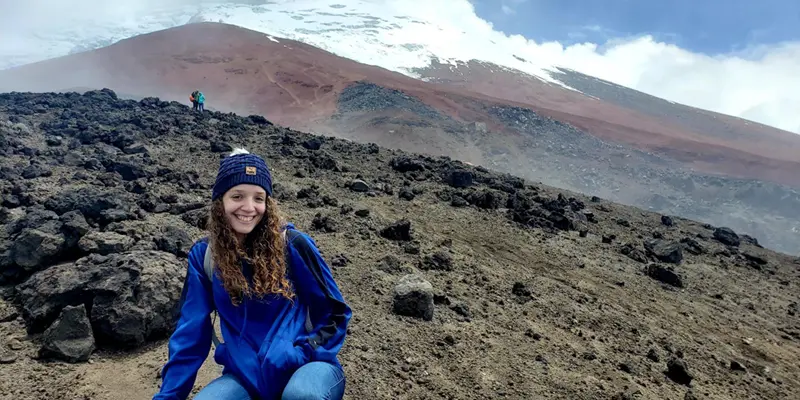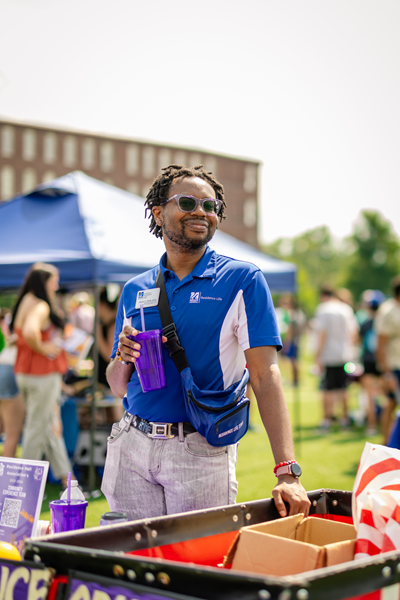For students who entered fall 2015 and beyond.
Freshman Year
Fall Semester
| Course Number | Course Name | Credits |
|---|
ENGL.1010 /
HONR.1100 | College Writing I /
First Year Seminar in Honors: Text in the City (CW) | 3 |
| FAHS.1090 | First Year Seminar | 1 |
| PHIL.1010 | Introduction to Philosophy (CTPS) | 3 |
| MATH.xxxx | Math Perspective (MATH) - MATH.1110 recommended1 | 3 |
| WLxx.xxxx | Language 1 and Culture | 3 |
| xxxx.xxxx | Social Sciences Perspective (SS) | 3 |
| Total | 16 |
Spring Semester
| Course Number | Course Name | Credits |
|---|
| ENGL.1020 | College Writing II (CW) | 3 |
| PHIL.1030 | Introduction to Ethics (SRE) | 3 |
| WLxx.xxxx | Language 2 and Culture | 3 |
| xxxx.xxxx | Social Sciences Perspective (SS) | 3 |
| xxxx.xxxx | Arts and Humanities Perspective (AH) | 3 |
| Total | 15 |
Sophomore Year
Fall Semester
| Course Number | Course Name | Credits |
|---|
| PHIL.1070 | Intro to World Religions (DCA) | 3 |
| PHIL.3xxx | Philosophy and Religion Elective (see list) | 3 |
| xxxx.xxxx | Science with Lab Perspectiv. (SCL) | 4 |
| xxxx.xxxx | Arts and Humanities Perspective (AH) | 3 |
| xxxx.xxxx | Language 3 and Culture /
World Ready Elective2 | 3 |
| Total | 16 |
Spring Semester
| Course Number | Course Name | Credits |
|---|
| PHIL.3xxx | Philosophy and Religion Elective (see list) | 3 |
| xxxx.xxxx | Religion Elective Outside Philosophy Department3 | 3 |
| xxxx.xxxx | Social Sciences Perspective (SS) | 3 |
| xxxx.xxxx | Science with Lab Perspective (SCL) | 4 |
| xxxx.xxxx | Language 4 and Culture /
World Ready Elective2 | 3 |
| Total | 16 |
Junior Year
Fall Semester
| Course Number | Course Name | Credits |
|---|
| xxxx.xxxx | Religion Elective Outside Philosophy Department3 | 3 |
| xxxx.xxxx | Religion Elective Outside Philosophy Department3 | 3 |
| xxxx.xxxx | Science, Technology, Engineering, and Mathematics Perspective (STEM) | 3 |
| xxxx.xxxx | Arts and Humanities Perspective (AH) | 3 |
| xxxx.xxxx | World Ready Elective2 / Free Elective | 3 |
| Total | 15 |
Spring Semester
| Course Number | Course Name | Credits |
|---|
| PHIL.xxxx | Philosophy Elective (any level) | 3 |
| xxxx.xxxx | Philosophy Elective / Free Elective | 3 |
| xxxx.xxxx | Philosophy Elective / Free Elective | 3 |
| xxxx.xxxx | Free Elective | 3 |
| xxxx.xxxx | Free Elective | 3 |
| Total | 15 |
Senior Year
Fall Semester
| Course Number | Course Name | Credits |
|---|
| xxxx.xxxx | Philosophy Elective / Free Elective | 3 |
| xxxx.xxxx | Philosophy Elective / Free Elective | 3 |
| xxxx.xxxx | Free Elective | 3 |
| xxxx.xxxx | Free Elective | 3 |
| xxxx.xxxx | Free Elective | 3 |
| Total | 15 |
Spring Semester
| Course Number | Course Name | Credits |
|---|
| PHIL.4951 | Senior Capstone (AIL), (WOC), (IL) | 3 |
| xxxx.xxxx | Philosophy Elective / Free Elective | 3 |
| xxxx.xxxx | Free Elective | 3 |
| xxxx.xxxx | Free Elective | 3 |
| xxxx.xxxx | Free Elective | 3 |
| Total | 15 |
Total Minimum Credits = 120.
1To satisfy the Core Curriculum Quantitative Literacy (QL) ELO, Philosophy majors in the Religious Studies option can either take PHIL.1020 Introduction to Logical and Critical Thinking, or an approved (QL) ELO course outside the major (e.g., MATH.1110 Math Perspectives, ECON.1010 Economics I, or MATH.2830 Intro. to Statistics).
2World Ready Language Track (WR track) requires successful completion of a two course sequence in a World Language (depending on placement) and three approved courses on the culture/history/literature/film related to that language, but taught in English. (Total of 15 credits.) For detailed information refer to Policies - Language Requirements in the undergraduate catalog.
3Students in this option may take up to three interdisciplinary classes directly relevant to the Religious Studies program. Please consult with your advisor about selecting available courses relevant to your interests and career goals.
See your advisor for a list of courses.
Philosophy majors under this option will be required to complete 30 total credits in Philosophy, with a minimum of 15 credits at the 3000 level or higher.
Required Courses (9.0 credits)
Philosophy and Religious Studies Courses (15 credits)
Students must take a total of 15 credits of approved philosophy and religious studies electives.
Upper Level Philosophy and Religion Courses (minimum 6 credits)
Students must take a minimum of 6 credits (2 courses) must be completed from the approved list of Philosophy and Religion Courses
Religion Electives outside Philosophy (maximum 9 credits)
Students may take up to a maximum of 9 credits (three courses) in approved philosophy and religious studies courses outside of the department. Exceptions to include other courses may be requested by petition.
Additional Elective (3 credits)
Students under this option must take at least one additional Philosophy course at any level, or one additional course from the “Religion Electives outside Philosophy” list.
Senior Capstone (3 credits) (AIL), (WOC), (IL)
Students must complete a thesis in the Senior Capstone.
Note: To satisfy the (QL) ELO requirement, Philosophy majors in the Religious Studies option can either take PHIL.2020 Introduction to Logic and Critical Thinking or an approved (QL) ELO course outside the major.
No more than two Breadth of Knowledge courses can be taken with the same prefix. The Core Curriculum courses may be taken in any sequence. Refer to the Core Curriculum policy for further details. You should meet with your faculty advisor to determine how you will meet the Core Curriculum requirements.
Current UMass Lowell students should be using their advisement report in SiS. If you need assistance, please contact your advisor.
Restriction on off-campus study:
Be advised that any course taken at another institution must be formally approved prior to enrollment.
See the catalog policy for details.











